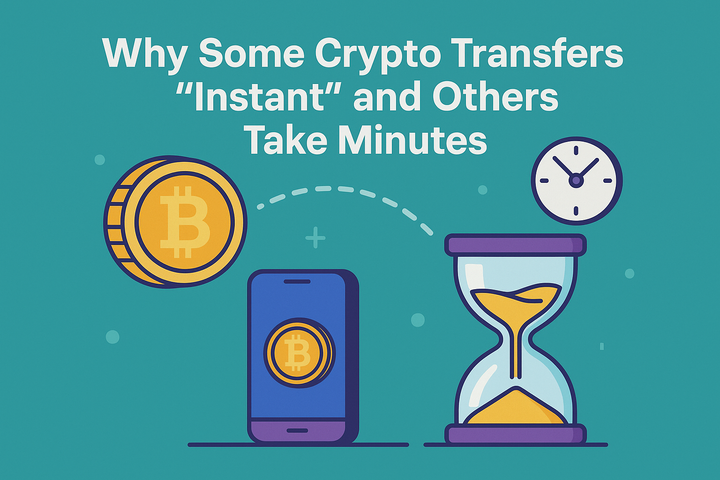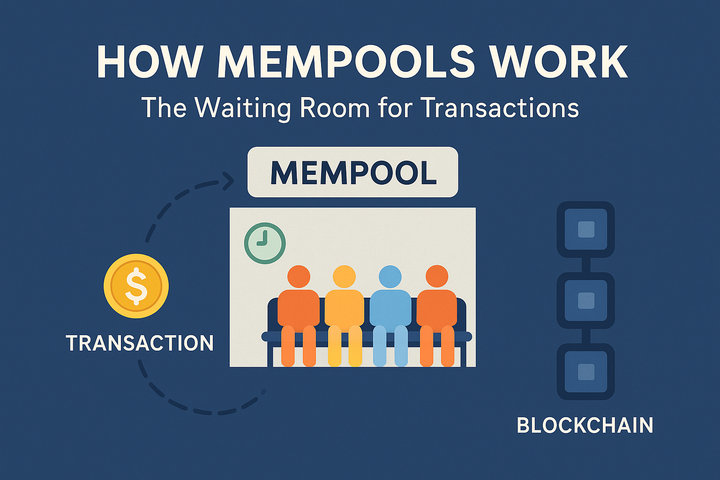Golden Visa via TON: A New Era of Crypto Migration?

Introduction
The intersection of cryptocurrency and immigration policy has reached a new frontier with recent developments surrounding The Open Network (TON) and its controversial attempt to create tokenized residency programs. In July 2025, the TON Foundation announced what appeared to be a groundbreaking initiative: the ability to obtain UAE Golden Visas through cryptocurrency staking. However, the subsequent rejection by UAE authorities has sparked broader discussions about the future of crypto-enabled migration and digital residency programs.
This development, while ultimately unsuccessful in its initial form, highlights the growing appetite for innovative approaches to global mobility among cryptocurrency holders and Web3 professionals, raising fundamental questions about the evolution of residency and citizenship in the digital age.
The TON Golden Visa Proposal: How It Was Supposed to Work
The Staking Mechanism
According to the original TON Foundation announcement, the proposed program would have allowed applicants to qualify for a 10-year UAE Golden Visa by staking $100,000 worth of TON tokens and paying a one-time processing fee of $35,000, with the staked tokens locked for three years through a non-custodial, verifiable smart contract on the TON blockchain.
This tokenized residency model represented a novel approach to investment-based immigration, combining several key elements:
- Smart Contract Security: The three-year lock period would have been enforced through blockchain technology, ensuring that the investment commitment could not be easily withdrawn or manipulated. This approach aimed to provide regulatory certainty while maintaining the decentralized nature of cryptocurrency holdings.
- Lower Entry Barriers: Traditional UAE Golden Visa programs typically require significantly higher investment thresholds, often exceeding $500,000 in real estate or business investments. The proposed $135,000 total cost ($100,000 stake + $35,000 fee) would have represented a more accessible entry point for crypto investors.
- Asset Liquidity Retention: Unlike traditional investment visa programs that require capital to be tied up in illiquid assets like real estate, the staking model would have theoretically allowed investors to maintain exposure to their cryptocurrency holdings while fulfilling residency requirements.
The Appeal to Crypto Nomads
The proposed program specifically targeted what TON called "crypto nomads" – a growing demographic of digital professionals who work in the Web3 space and seek jurisdictional flexibility. The program promised a streamlined process, lower investment requirements, and asset liquidity, addressing key pain points for this community.
For crypto nomads, the appeal lay in several factors:
- Regulatory Clarity: The UAE's progressive stance on cryptocurrency regulation made it an attractive jurisdiction for crypto professionals seeking legal certainty.
- Tax Optimization: The UAE's lack of personal income tax provided significant advantages for high-earning crypto professionals.
- Geographic Advantage: Dubai's position as a bridge between East and West, combined with its modern infrastructure, made it an ideal base for global operations.
The Reality Check: UAE's Official Response
The enthusiasm surrounding TON's announcement was short-lived. UAE authorities quickly clarified that no official digital residency or investment visa programs had been approved or launched in collaboration with TON, effectively shuttering the initiative before it could gain traction.
UAE authorities confirmed that Golden Visa programs do not include crypto investors, refuting claims about TON-linked residency. This response highlighted a crucial gap between crypto industry ambitions and regulatory reality, demonstrating that traditional immigration frameworks are not yet ready to accommodate purely digital asset-based investment programs.
The TON Foundation subsequently acknowledged the situation, stating: "We welcome the clarity provided and appreciate the UAE's ongoing commitment to regulatory transparency", while emphasizing their commitment to working within established regulatory frameworks.
Regulatory Framework Challenges
The TON-UAE incident exposed fundamental challenges in adapting traditional immigration law to the cryptocurrency era. Several key issues emerged:
- Asset Volatility Concerns: Cryptocurrency's inherent price volatility raises questions about maintaining stable investment thresholds required by residency programs. While $100,000 in TON tokens might meet requirements at the time of application, market fluctuations could quickly alter the investment's value.
- Compliance and Monitoring: Traditional investment visa programs rely on established financial institutions to verify and monitor investments. Cryptocurrency holdings, while transparent on-chain, require different verification mechanisms that regulators may not yet be equipped to handle.
- Anti-Money Laundering (AML) Considerations: Immigration authorities must ensure that investment funds come from legitimate sources. The pseudonymous nature of many cryptocurrency transactions complicates traditional due diligence processes, requiring new frameworks for compliance verification.
Economic Impact on Web3 Migration Patterns
Despite the setback, the incident revealed significant pent-up demand for crypto-friendly immigration solutions. The old model of "live where you pay taxes" is increasingly outdated for Web3, as crypto entrepreneurs need jurisdictional flexibility to protect capital and optimize taxes.
The crypto nomad phenomenon reflects broader economic trends:
- Geographic Arbitrage: Web3 professionals often earn in strong currencies while seeking lower-cost jurisdictions, creating natural incentives for geographic mobility.
- Regulatory Shopping: As different jurisdictions develop varying approaches to cryptocurrency regulation, professionals naturally gravitate toward more favorable regulatory environments.
- Network Effects: The concentration of crypto professionals in specific locations creates ecosystem benefits, attracting more talent and investment to crypto-friendly jurisdictions.
Alternative Approaches to Digital Residency

While the TON-UAE initiative failed, other jurisdictions and projects are exploring innovative approaches to digital residency:
- Blockchain-Based Identity Solutions: The Palau ID represents a revolutionary approach to residency, integrating seamlessly with blockchain technology to provide decentralized identity management, making it ideal for individuals in the crypto and Web3 ecosystems. This approach focuses on identity verification rather than investment requirements, potentially offering a more sustainable path forward.
- Traditional Nomad Visa Programs: Portugal's residency route begins with a 4-month entry visa, after which applicants can obtain a 2-year residence permit (renewable for 3 more years), requiring remote work income at least four times the Portuguese minimum wage. Such programs, while not crypto-specific, provide pathways for Web3 professionals to establish legal residency.
- Emerging Digital Nomad Frameworks: Digital nomad visas are special residence permits that allow remote work in a country for extended periods, with numerous destinations now offering such programs. These frameworks could potentially be adapted to accommodate crypto-based income verification and digital asset holdings.
Will the UAE Become a Crypto Hub? Analyzing Web3 Migration Trends

Despite rejecting the TON partnership, the UAE continues to position itself as a major cryptocurrency hub through official channels. Dubai's Virtual Assets Regulatory Authority (VARA) has established comprehensive frameworks for cryptocurrency businesses, while maintaining strict oversight of unauthorized programs.
The rejection of unofficial partnerships like TON's proposal actually reinforces the UAE's commitment to regulatory compliance, potentially increasing confidence among institutional crypto investors who prioritize regulatory clarity over innovation for its own sake.
The Network Effect Challenge
The Web3 industry is in early development stages, where each participant's voice is relatively fair, creating opportunities for jurisdictions to establish themselves as crypto hubs. However, success requires more than favorable regulation – it demands ecosystem development, including:
- Educational institutions offering blockchain and crypto curricula
- Venture capital firms specializing in Web3 investments
- Established financial services supporting crypto businesses
- Cultural acceptance of cryptocurrency adoption
Future Implications and Outlook
The TON-UAE situation provides several important lessons for future crypto-residency initiatives:
- Regulatory Pre-approval is Essential: Any legitimate program must have explicit government backing before public announcement. The crypto industry's "move fast and break things" mentality doesn't translate well to immigration policy.
- Traditional Frameworks Still Dominate: While blockchain technology offers new possibilities, immigration law remains firmly rooted in traditional legal frameworks that change slowly and deliberately.
- Compliance Cannot be Bypassed: Successful programs must address AML, KYC, and other regulatory requirements from the outset, rather than treating them as afterthoughts.
Potential Future Models
Several models could emerge for legitimate crypto-enhanced residency programs:
- Hybrid Investment Structures: Programs that combine traditional investments (real estate, government bonds) with cryptocurrency holdings to diversify risk while accommodating crypto investors.
- Regulated Staking Programs: Government-sanctioned staking mechanisms that provide regulatory oversight while leveraging blockchain technology for transparency and efficiency.
- Digital Nomad Integration: Existing digital nomad visa programs could be expanded to explicitly accommodate crypto-based income and digital asset holdings.
The Broader Trend Toward Digital Governance
The crypto-residency discussion reflects broader trends toward digitization of government services and identity management. While the TON experiment failed, the underlying demand for more flexible, technology-enabled immigration solutions remains strong.
Future developments may include:
- Blockchain-based identity verification systems integrated with immigration processes
- Smart contracts for monitoring compliance with residency requirements
- Cross-border cooperation on digital identity standards
- Integration of DeFi protocols with government treasury functions
Conclusion
The TON Golden Visa saga, while ultimately unsuccessful, represents a significant moment in the evolution of crypto-enabled migration. The incident highlighted both the substantial demand for innovative residency solutions among crypto professionals and the inherent challenges in adapting traditional immigration frameworks to accommodate digital assets.
The UAE's firm rejection of the unauthorized partnership demonstrates that successful crypto-residency programs must be built through official channels with proper regulatory approval. However, the interest generated by the announcement suggests that legitimate programs addressing similar needs could find substantial market demand.
As Web3 continues to mature and crypto adoption expands, the pressure for more flexible, technology-enabled residency solutions will likely increase. Success will depend on finding the right balance between innovation and regulatory compliance, ensuring that new programs serve both the needs of crypto nomads and the regulatory requirements of host nations.
The future of crypto migration may not look exactly like the TON proposal, but the underlying trends driving demand for such solutions – remote work normalization, cryptocurrency mainstream adoption, and the global nature of Web3 businesses – suggest that some form of blockchain-enhanced residency programs will eventually emerge. The key will be ensuring they develop through proper regulatory channels rather than unauthorized initiatives.
- CryptoBriefing. "TON introduces UAE Golden Visa program through crypto staking, Toncoin soars 13%".
- Cointelegraph. "UAE denies formal TON partnership over Golden Visa." July 2025.
- CoinDesk. "TON Foundation's UAE Golden Visa Announcement Powers Strong $TON Rally on High Volume."
- Gulf News. "UAE shuts down TON's crypto claims on Golden Visa eligibility: What you need to know!"
- CryptoNews. "TON Clarifies Golden Visa Project Has No Official UAE Backing." July 2025.
- Armenian Lawyer. "The Top Countries for Digital Nomads and Crypto Investors in 2025." March 2025.
- BeInCrypto Learn. "Digital Nomads & Web3: A guide to traveling the world and working." December 2024.
- Soland World. "Digital Nomad 2.0: Taxes and Residency for Crypto Entrepreneurs." May 2025.
- OneBlock Community. "Become Digital Nomads, Why are They All in Web3?" February 2023.
- UAE Government Portal. "Golden Visa for Investors."
- Dubai Virtual Assets Regulatory Authority (VARA). "Regulatory Framework."
- TON Foundation Official Website.
- Portugal Immigration and Borders Service. "Residence Visa Information."
About Mitosis:
Mitosis APP
Blog
Docs
X
Discord



Comments ()